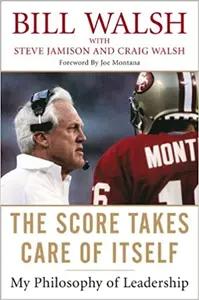Walking
By Henry David Thoreau
Category
HealthRecommended by
"Walking" by Henry David Thoreau is a profound exploration of the act of walking and its significance in our connection with nature and our own selves.
Thoreau delves into the transformative power of ambulation, emphasizing the need for individuals to embark on purposeful walks to discover the true essence of life. He encourages readers to drift away from the hustle and bustle of society and immerse themselves in the simplicity and beauty of the natural world.
Through eloquent prose, Thoreau shares his personal experiences of walking in various landscapes, from meandering through forests to striding across snow-covered fields. He highlights the importance of quiet observation and contemplation during these excursions, providing insights into the connection between walking and thinking.
The author also delves into the historical, cultural, and philosophical aspects of walking, referencing figures like Plato and Wordsworth to highlight the longstanding tradition of walkers who have sought truth, clarity, and enlightenment through this act.
Thoreau's reflections on walking weave together musings on topics such as solitude, freedom, and the environment. He implores readers to appreciate the magnificence of the Earth and to reevaluate their own relationship with it. He invites individuals to walk with intention, to truly see the world around them, and to recognize the value of simplicity and self-discovery that can be found on a path less traveled.
In "Walking," Thoreau's lyrical prose invites readers to reflect on the importance of slowing down, connecting with nature, and embracing the transformative power of walking. It serves as a reminder to appreciate the world we live in and to venture forth with a renewed sense of curiosity and reverence.
Thoreau delves into the transformative power of ambulation, emphasizing the need for individuals to embark on purposeful walks to discover the true essence of life. He encourages readers to drift away from the hustle and bustle of society and immerse themselves in the simplicity and beauty of the natural world.
Through eloquent prose, Thoreau shares his personal experiences of walking in various landscapes, from meandering through forests to striding across snow-covered fields. He highlights the importance of quiet observation and contemplation during these excursions, providing insights into the connection between walking and thinking.
The author also delves into the historical, cultural, and philosophical aspects of walking, referencing figures like Plato and Wordsworth to highlight the longstanding tradition of walkers who have sought truth, clarity, and enlightenment through this act.
Thoreau's reflections on walking weave together musings on topics such as solitude, freedom, and the environment. He implores readers to appreciate the magnificence of the Earth and to reevaluate their own relationship with it. He invites individuals to walk with intention, to truly see the world around them, and to recognize the value of simplicity and self-discovery that can be found on a path less traveled.
In "Walking," Thoreau's lyrical prose invites readers to reflect on the importance of slowing down, connecting with nature, and embracing the transformative power of walking. It serves as a reminder to appreciate the world we live in and to venture forth with a renewed sense of curiosity and reverence.
Share This Book 📚
More Books in Health

Why We Sleep
Matthew Walker

Breath
James Nestor

Lifespan
David Sinclair

The Happiness Hypothesis
Jonathan Haidt

Burn
Herman Pontzer

Fast Food Nation
Eric Schlosser

Good Calories, Bad Calories
Gary Taubes

Joy on Demand
Chade-Meng Tan

Love Yourself Like Your Life Depends On It
Kamal Ravikant

Mindfulness in Plain English
Bhante Henepola Gunaratana

On Immunity
Eula Biss

Outlive
Peter Attia

The Case Against Sugar
Gary Taubes

The Great Influenza
John M. Barry

The Sleep Revolution
Arianna Huffington

A Shot To Save The World
Gregory Zuckerman

Adult Children of Alcoholics
Janet Geringer Woititz

Aware
Daniel Siegel

Body by Science
John Little

Breath From Salt
Bijal P. Trivedi

Buddha's Brain
Rick Hanson

Catastrophic Care
David Goldhill

Consciousness Medicine
Françoise Bourzat

Dreamland
Sam Quinones

Eating Animals
Jonathan Safran Foer

Experimental Man
David Ewing Duncan

Flu
Gina Kolata

Free The Animal
Richard Nikoley

House On Fire
Bill Foege

Merchants of Doubt
Naomi Oreskes
Popular Books Recommended by Great Minds 📚

Destined For War
Graham Allison

When Breath Becomes Air
Paul Kalanithi

Creativity, Inc.
Ed Catmull

The Courage To Be Disliked
Ichiro Kishimi

The Score Takes Care of Itself
Bill Walsh

Principles for Dealing With The Changing World Order
Ray Dalio

Behind the Cloud
Marc Benioff

Atlas Shrugged
Ayn Rand

Einstein
Walter Isaacson

Range
David Epstein

Siddhartha
Hermann Hesse

Dune
Frank Herbert

Trailblazer
Marc Benioff

Thinking, Fast and Slow
Daniel Kahneman

Antifragile
Nassim Nicholas Taleb

The Hard Thing About Hard Things
Ben Horowitz

American Kingpin
Nick Bilton

Originals
Adam Grant

Becoming Steve Jobs
Brent Schlender

The Dao of Capital
Mark Spitznagel

The Coddling of the American Mind
Greg Lukianoff & Jonathan Haidt

The Ascent of Money
Niall Ferguson

The Third Wave
Steve Case

Scale
Geoffrey West

The Intelligent Investor
Benjamin Graham

7 Powers
Hamilton Helmer

Behave
Robert Sapolsky

The Fountainhead
Ayn Rand

Principles
Ray Dalio

Mindset
Carol Dweck
